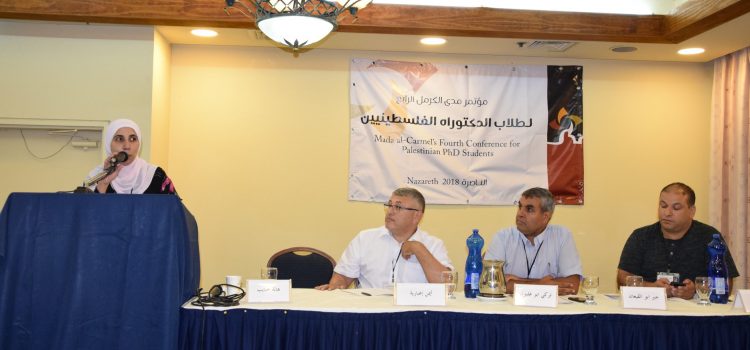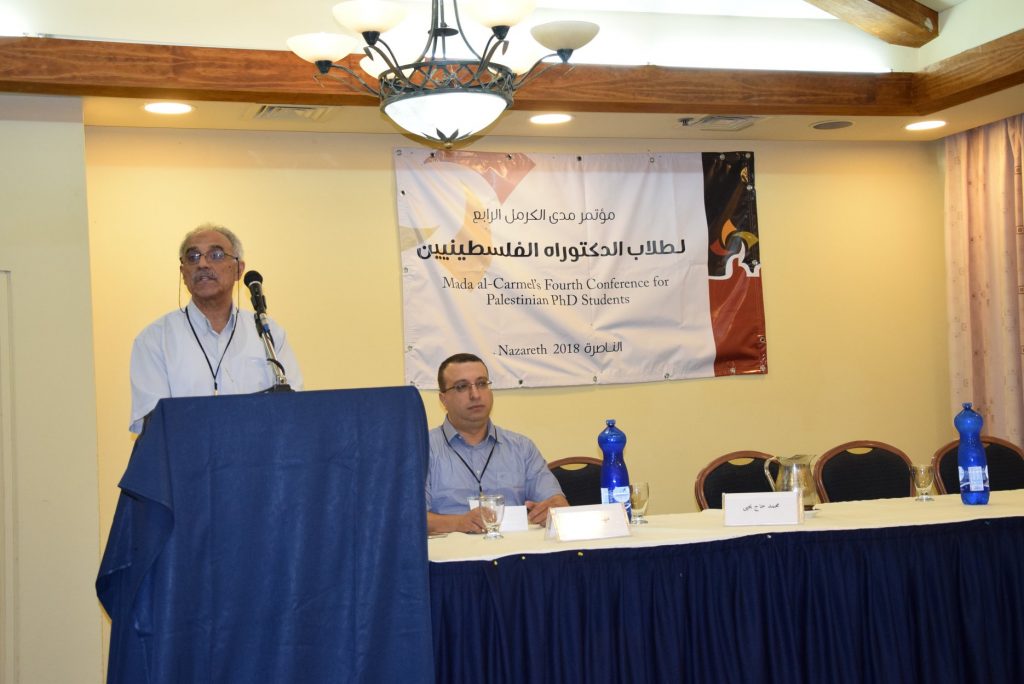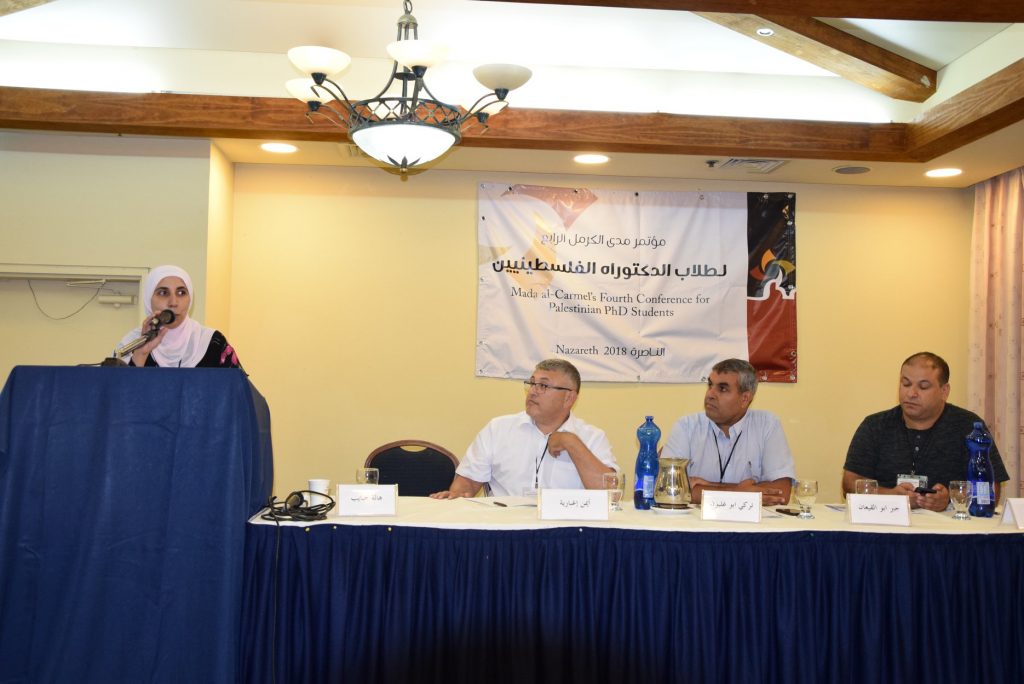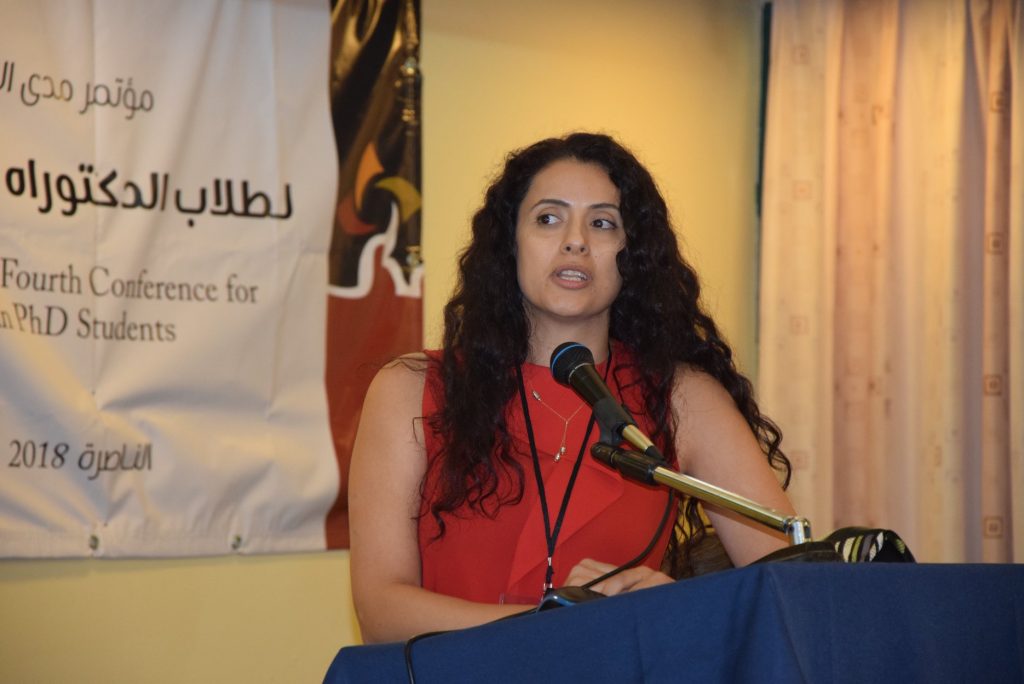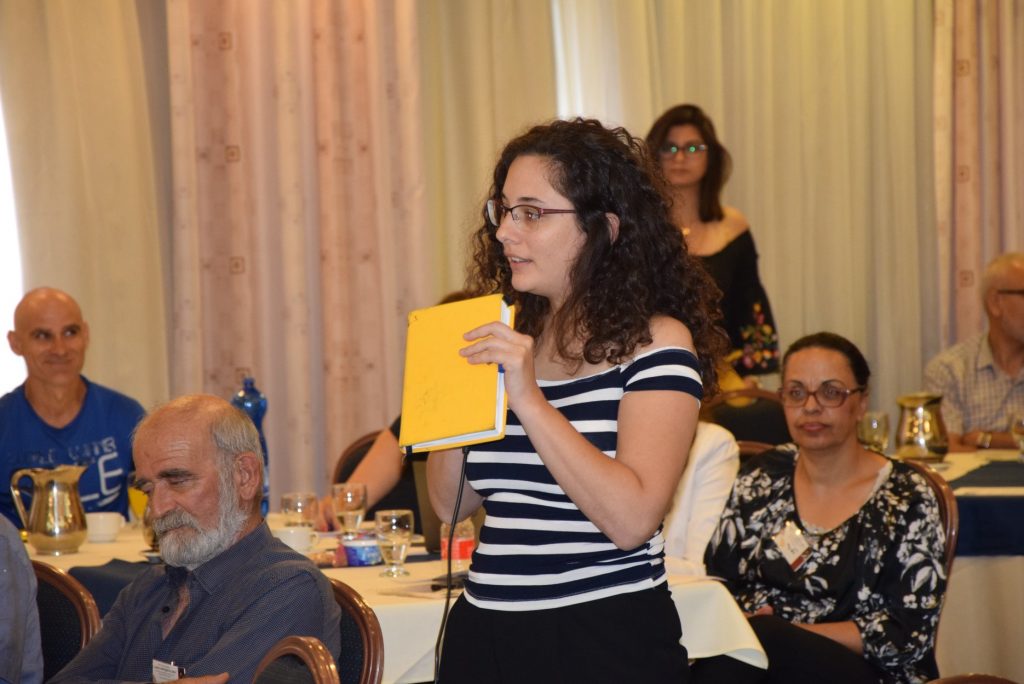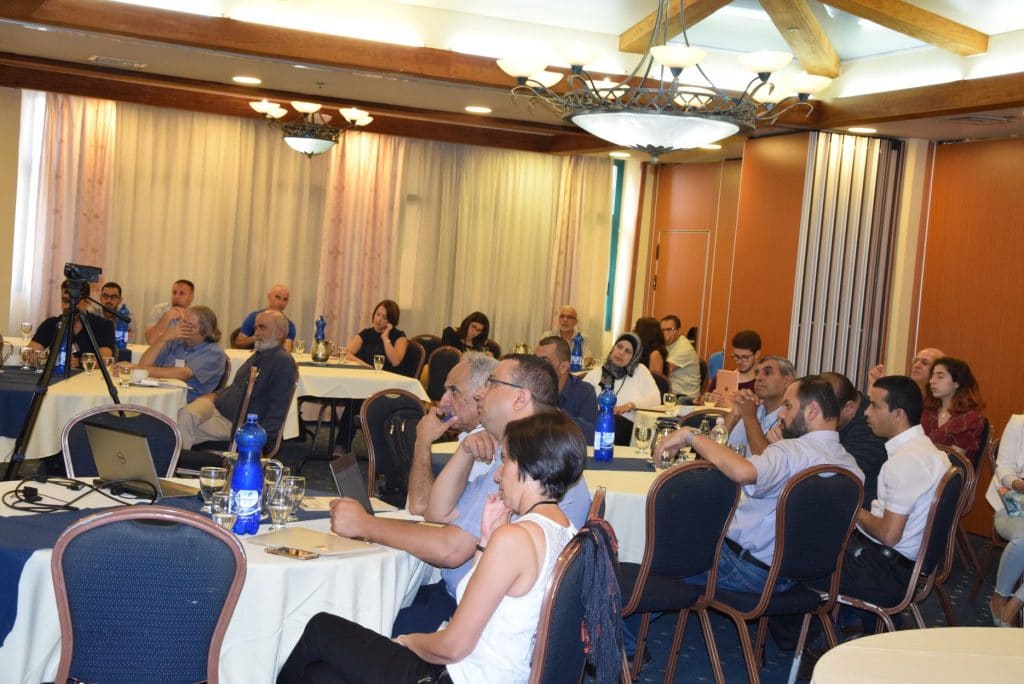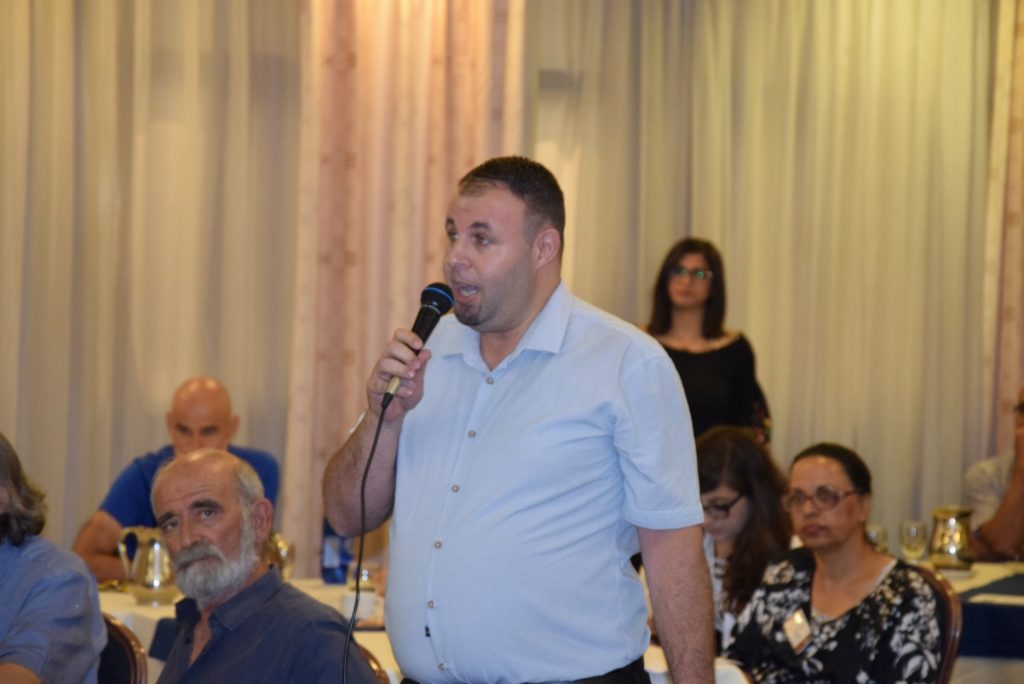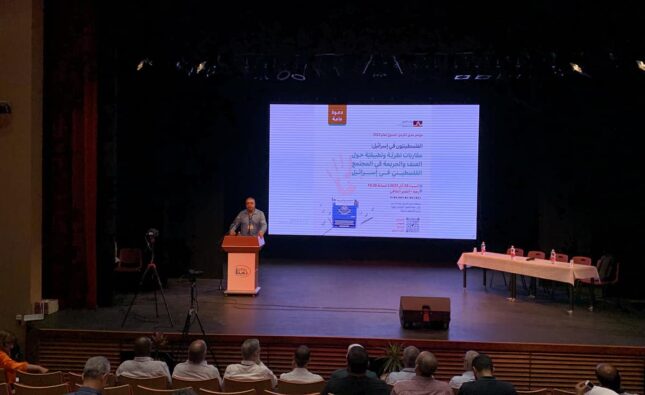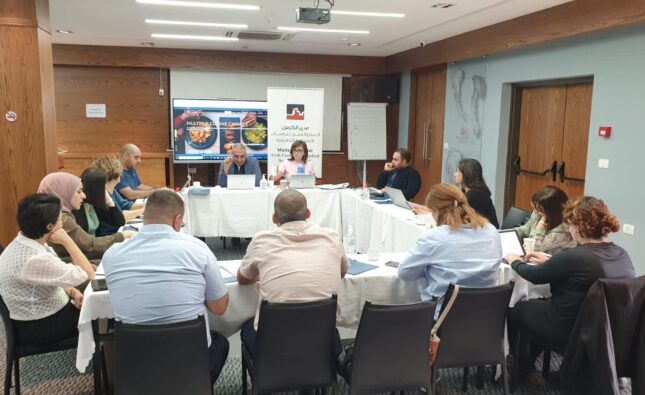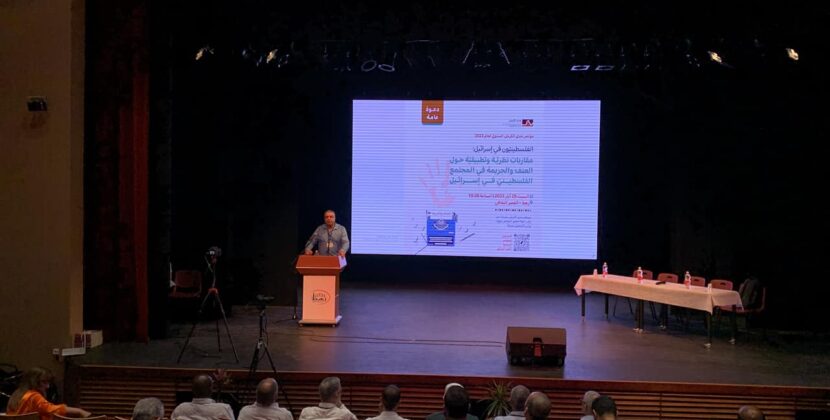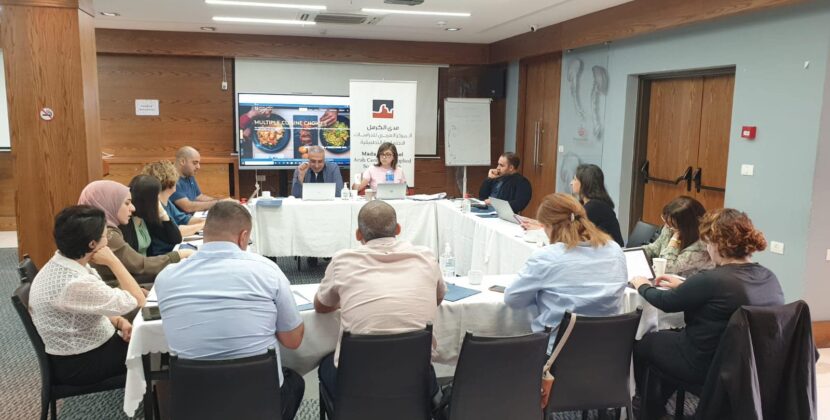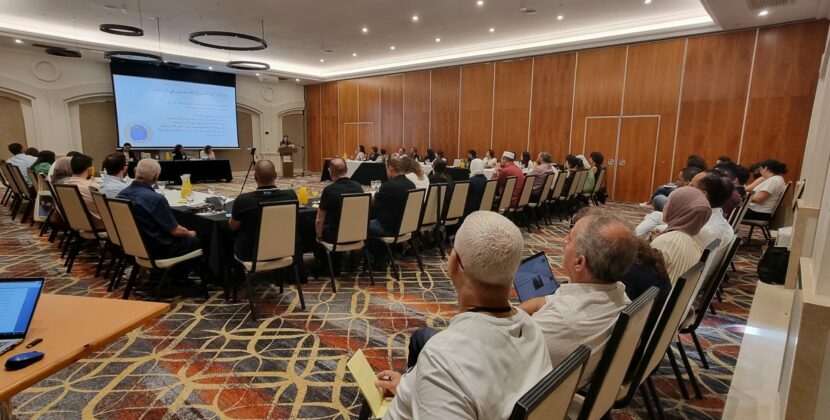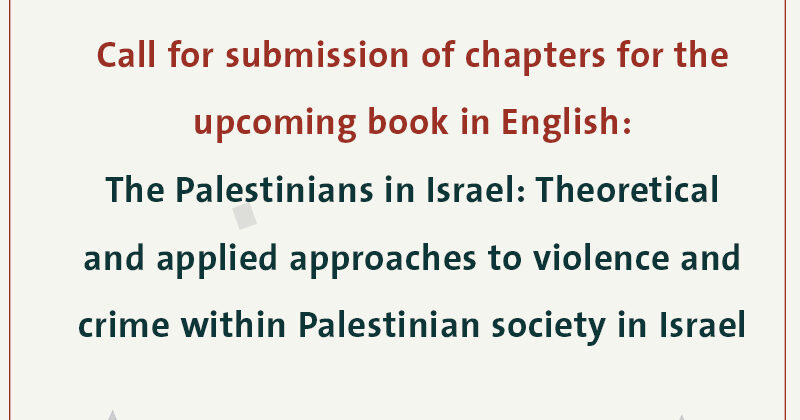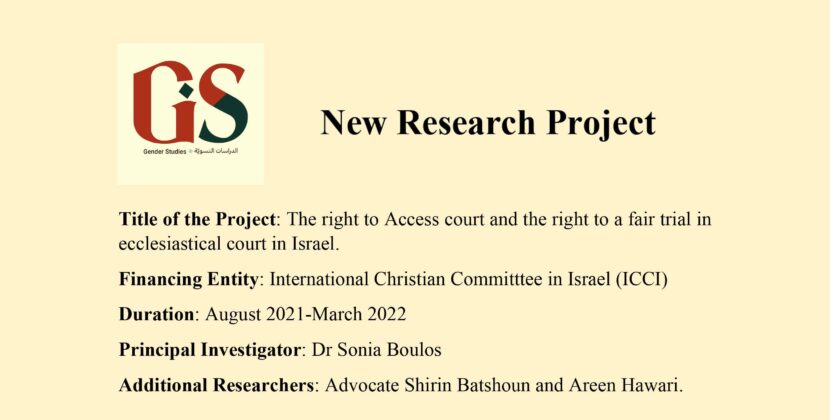Mada al-Carmel, The Arab Center for Applied Social Research, held its fourth annual conference for Palestinian doctoral students at the Rimonim Mary’s Well Hotel in Nazareth. Dozens of academics, researchers and activists were present to discuss the doctoral research of Palestinian students from inside Israel, the West Bank, Jerusalem and Gaza.
The conference opened with welcoming words from two members of the conference’s academic committee; Dr. Muhannad Mustafa, General Director of Mada al-Carmel, and Professor Muhammad Haj Yahya, lecturer at the Hebrew University’s School of Social Work. The conference included three sessions, entitled “Politics and Civil Society,” “Education” and “Palestinian Society: Between the Social and Political.”
Politics and Civil Society The first session entitled, “Politics and Civil Society,” was chaired by Michael Karayanni, Professor and Dean of the Faculty of Law at the Hebrew University. Three female students presented their research focus in this session. The first research, entitled “Palestinians/Israelis in the Gray Zone,” was presented by Ghada Samman, a doctoral student in sociology at Birzeit University. She said that the Oslo agreement and its repercussions, have led to a shift in the conflict, thus increasing and tightening control over the Palestinians. It also placed the Palestinians in a gray area, enabling Israel to manage the conflict with its sharp contrasts. Samman said, “This grayness is embodied in: The Palestinian Authority as a state/non-state, as it does not have the constituents of a state, while it behaves as a state. Hamas and the PLO are liberation movements/governments, and Israel controls the economy and borders. In addition to the external interference in the Palestinian Authority and Palestinian institutions through support. Specifically, funding from the World Bank and the International Monetary Fund, thus embodying a colonization of another kind.”
The third, and final presentation in this session was made by Raefa Jabareen, a doctoral student in Health Services Management at the University of Haifa. Her research entitled, “Knowledge, Attitudes and Sexual Behaviors of Arab High School Students,” addressed the issue of Palestinian adolescent sexual health through the use of a questionnaire. Jabareen says her research aims to “develop a culturally and socially appropriate theoretical framework, which includes the external influences (home, school, group of friends, customs and traditions, religion and the Internet) and the internal influences (psychological, emotional and cognitive), in order to be used as a tool to predict the sexual behaviors of young people in a conservative society.”
Education
The second session, entitled “Education,” was chaired by Dr. Ayman Agbaria, a lecturer at the University of Haifa’s Faculty of Education. During this session, four research studies were presented by one female and three male researchers. The first presentation was made via Skype by Mohammad Khalidi, who holds a doctorate in Public Health from the University of Basel, Switzerland, on “The Palestinian Health System: A Look Toward the Future.” The research is a three-year project that analyzed the health research system in Palestine, as a response to the global trends of investment in scientific research knowledge in planning and decision-making, in order to strengthen the health systems and other development sectors in developing countries in particular.
The second presentation, entitled “Extracurricular Activities and the Value System in the Arab Education System in the Naqab,” was given by Jaber Abu al-Qi’an, who holds a doctorate from Yarmouk University’s Faculty of Education in Jordan. The study aims to identify the extent directors of extracurricular educational activities in the Naqab region exercise their role, and its relation to the high school students’ commitment to the prevailing system of values. Abu al-Qi’an used the descriptive survey approach as the methodology for his research. A random sample, representative of the study community, of 336 high school teachers and youth counselors in the Naqab region were chosen.
The third presentation, entitled “The Development of Professional and Maternal Self-Efficacy in Higher Education among Arab Women – A Dialogue between Identities” was made by Hala Habayeb. Ms. Habayeb holds a doctorate degree from Tel Aviv University’s Faculty of Education. The results of the study showed that there is a reciprocal relationship between professional competence and maternal efficiency. These results showed that it is not enough to see self-efficacy and expectations of results as key factors in the professional development of women, as demonstrated by the social cognitive theory. Rather, it is also important to expand this theory, and take into account the relationship between the development of professional competence and maternal efficiency and vice versa.
The fourth and final presentation of this session was given by Turki Abu Ghalyoun, a doctoral student at Ben-Gurion University’s Faculty of Education. His presentation was on the social changes and developments of the Arab Bedouins in the South: the changes in values and knowledge perspective of populations in transition.
Palestinian Society: Between the Social and Political
The last session of the conference entitled, “Palestinian Society: Between the Social and Political,” was chaired by Dr. Areej Sabbagh-Khoury, an assistant professor in the Department of Sociology and Anthropology at the Hebrew University in Jerusalem and a research fellow at Mada al-Carmel. The first presentation was made by Abeer Othman, a doctoral student at the Hebrew University’s School of Social Work, on “Paternity in the Colonial Settlement Context: A Case Study of Jerusalem.” Ms. Othman examined the effects of the reality of pillaging and dispossession, militarization and organized violence on Palestinian parents in Jerusalem, and discussed the impact of the ongoing psychological trauma on them. The study aims to “understand paternity and its transformation in the context of Jerusalem’s settlement colonialism, through the analysis of psychosocial trauma theories and the mechanics of the colonial structure. At the same time, attempts at resistance cannot be ignored in the relations of power and control between the colonizer and the colonized. Accordingly, the proposed study will discuss the immunity and psychological, social and cultural resistance of the Jerusalemite parents.
The second presentation was given by Heba Zeidan, a doctoral student at the Hebrew University’s School of Social Work. Her research deals with the “Relationship between Socio-Political Stress Factors and Domestic Violence in Palestinian Society.” The study examines the relationship between the exposure of Palestinian parents in Israel to stress factors of a socio-political nature, and domestic violence. The study also examines whether the cognitive-personal assessment of stress and mental health of the parents following this exposure, is central to this relationship. As well as whether the gender of the parent, social support and coping patterns, reduce or exacerbate the effects of exposure to stress and pressure factors on domestic violence.
The third and final presentation of the conference was made by Ibrahim Abu Ajaj, who holds a doctorate in education from Adam Mickiewicz University in Poland on “Youth at Risk in the Arab Society in the Naqab.” The presentation discussed the relationship between ethnic cultural identity and family behavior variables, and the foundations of dealing with the civil and local affiliation circles among the “youth at risk” in the Arab Bedouin community in the Naqab. Abu Ajaj said, “The majority of the Arab community in the Naqab lives in social risk due to the harsh conditions in the Naqab. The youth in the Arab community in the Naqab are the most vulnerable due to social, economic, civil, local and political conditions.”





